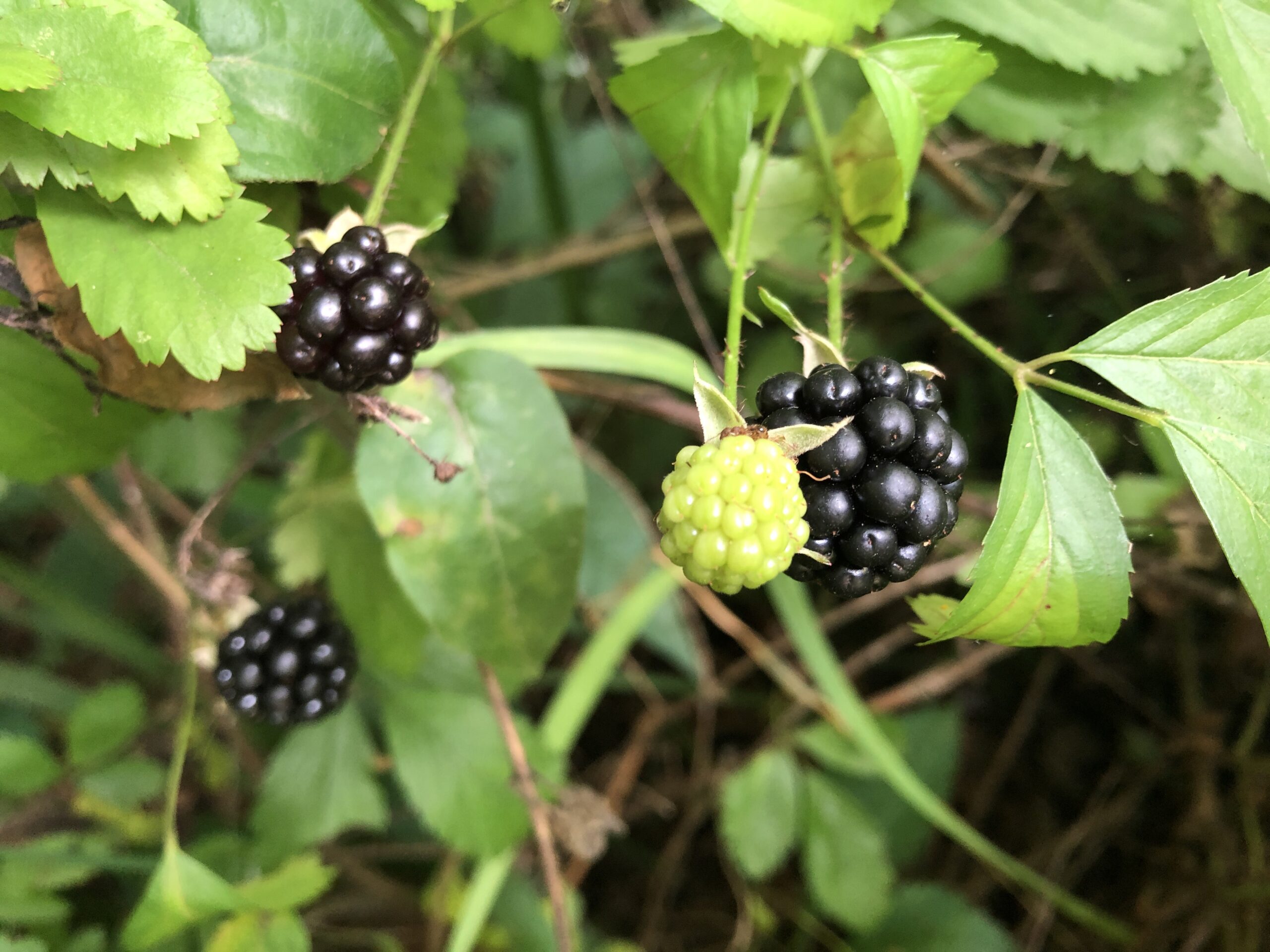Guess what? It is ok to put energy into your own growth.
And guess what else? That mindset in no way conflicts with one’s ability to be generous, available, or nurturing. In other words, productive in the truest sense.
The wild blackberry vine holds these truths as self-evident. It neither asks permission nor begs any pardon for taking the resources it needs to survive. Nor, conversely, is it stingy with its gifts—those addictively tart, slightly gritty, wild-tasting berries that feed a host of birds and wildlife, with enough left over for you and me.
As is the case with virtually all produce, not one of these check-puckering mouthfuls of edible sunlight would exist if this vine had not intentionally and unapologetically claimed the energy and space it needed to make them possible.
I first encountered this concept, this permission, to put energy into one’s own growth, while following a guide on a native plant walk. The walk was part of a nature writing workshop I helped put together, centering on native plants and the stories, cultural significance, and traditional wisdom they carry.
Our guide, Tammy Greer, directs the Center for Native American Studies at the University of Southern Mississippi, and is a member of the United Houma nation. Follow Tammy through the woods, and you’ll never see vegetation the same way again.
On our walk, when she would spot a native plant that carried a particularly special meaning to her, she would introduce it to the group as though she just bumped into an old friend. Before long, everyone knew its name, what it did that made it so important, and some of the memories it sparked for her. Legends, lore, and botany bubbled forth like water from a spring.
When we encountered wild blackberry, Tammy stopped in her tracks and spun around. She spoke with oomph and urgency: “Listen. Look at this! Here is what this says,” she pointed to the vine. “It is OK to put energy into your own growth.”
Although it’s true that vines like these can and do harm the canopy in their quest for success, in her memoir Lab Girl Hope Jahren describes them as “not evil, just hopelessly ambitious.” Usually, Jahren explains, their over-proliferation is a direct result of disturbance caused by humans, but that’s another story.
For now, in a culture obsessed with unlocking the power of productivity to constantly achieve more, I’m often find myself asking, “when is enough enough”? When will we have achieved enough, done enough, grown enough?
And yet the wild blackberry proves there are still some kinds of growth worth investing in. And the other side to that coin? All the nourishing gifts we can bring to the world when we do. Productivity with a capital P.
So for now, I leave you with your parting gift—a question:
How can you put energy into your own growth, today?
